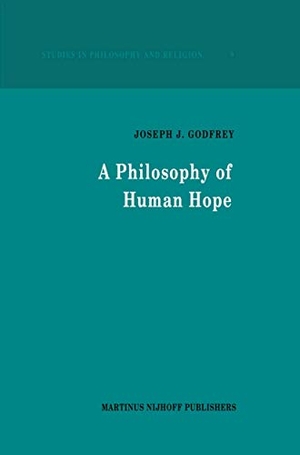Für statistische Zwecke und um bestmögliche Funktionalität zu bieten, speichert diese Website Cookies auf Ihrem Gerät. Das Speichern von Cookies kann in den Browser-Einstellungen deaktiviert werden. Wenn Sie die Website weiter nutzen, stimmen Sie der Verwendung von Cookies zu.
Cookie akzeptieren
J. J. Godfrey
A Philosophy of Human Hope
- Springer Netherlands
- 1987
- Taschenbuch
- 292 Seiten
- ISBN 9789024733545
Few reference works in philosophy have articles on hope. Few also are systematic or large-scale philosophical studies of hope. Hope is admitted to be important in people's lives, but as a topic for study, hope has largely been left to psychologists and theologians. For the most part philosophers treat hope en passant. My aim is to outline a general theory of hope, to explore its structure, forms, goals, reasonableness, and implications, and to trace the implications of such a theory for atheism or theism. What has been written is quite disparate. Some see hope in an individualistic, often existential, way, and some in a social and
Mehr
Weniger
zzgl. Versand
in Kürze